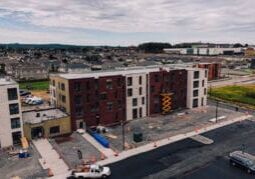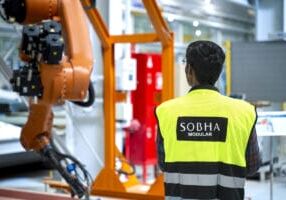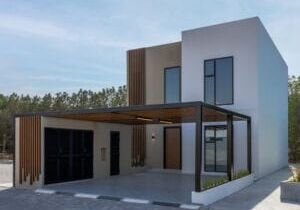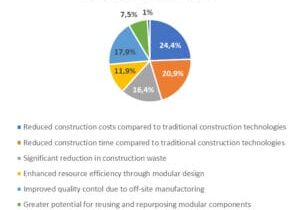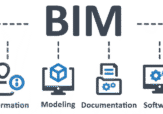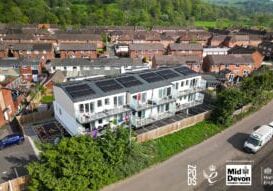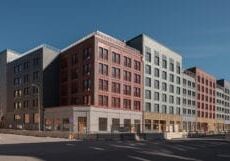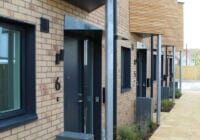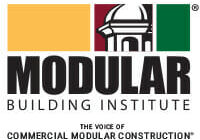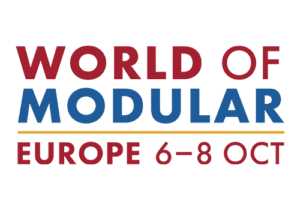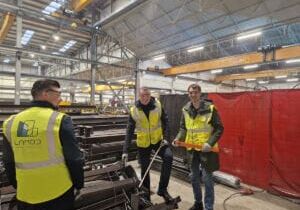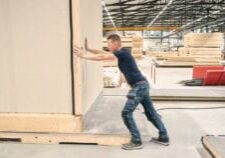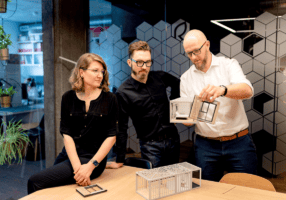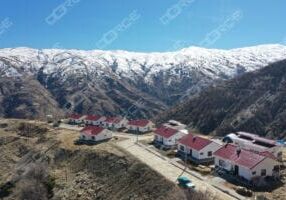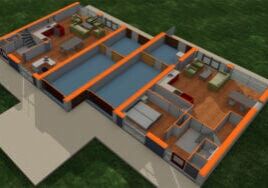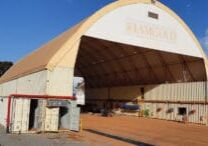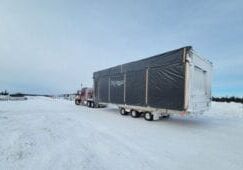About MBI's European Council & Growth Opportunities: Modular Building Manufacturers and Builders in Europe
Welcome – Bienvenido – Bienvenu – Benvenuto – Willkommen
As the European arm of the international Modular Building Institute, MBI Europe is the leading voice for modular construction across the continent. Representing more than 50 member companies from 17 European countries, MBI Europe brings together an unmatched network of industry leaders. Our members span the full spectrum of the sector—from global multinational corporations to innovative small and medium-sized enterprises (SMEs)—combining deep expertise, proven experience, and a shared commitment to advancing modular construction throughout Europe.
MBI hosts European industry leaders at its annual World of Modular Europe conferences.
These events are in addition to MBI’s annual World of Modular Conference & Tradeshow, normally held in sites across North America. Our plans for European growth also include:
- To better connect all industry companies within Europe as well as globally.
- To better promote the industry within Europe.
- To advocate industry interests within the legislative and regulatory bodies.
- To promote a “careers in modular construction” campaign to help expand the workforce.
- To organize additional education and networking events for the industry.
These programs and services represent an expansion of the currently offered benefits our European members already enjoy. MBI currently represents a small but growing group European-based modular companies and wants to build upon that foundation.
If you are interested in joining MBI, contact us today to learn more about European member benefits and opportunities.
Upcoming Council Meetings
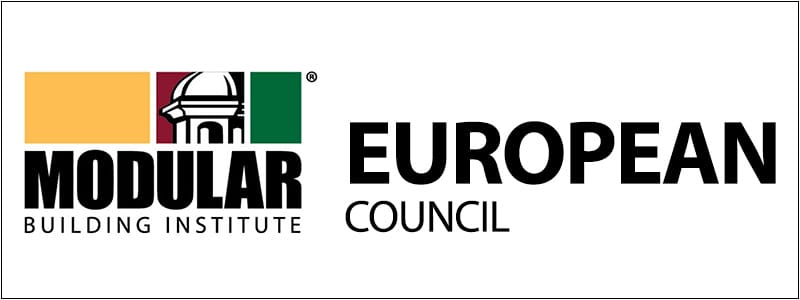
European Events
The Modular Building Institute sponsors and hosts events, meetings, and summits in Europe in order to facilitate networking and grow awareness of the commercial modular construction industry.
Connect with MBI Members Across Europe
Looking for a partner for your next modular building project in Europe? At the Modular Building Institute, you can quickly and easily find qualified modular builders, architects, and engineers in Europe that provide the services you need. No matter the size, scale, or scope of your project, you can trust that one of our members will be right there working alongside you to ensure your vision is executed to perfection. Their experience and expertise will be invaluable assets you can rely on from conception to post-construction. Use the search feature to find contractors in your area now, and you can conveniently request estimates and any other information you need.
Browse Modular Projects in Europe
This interactive map showcases modular building projects submitted by MBI members across Europe. Though it reflects only a fraction of the industry’s total output, it clearly illustrates the scale, variety, and versatility of commercial modular construction.
Why Work with Our Modular Builders in Europe?
As the largest modular construction association in the world, the Modular Building Institute has an extensive directory of modular builders, manufacturers, and designers in Europe that will bring experience and expertise to your project. To become an MBI member, commercial modular construction professionals must consistently demonstrate a commitment to quality, safety, and integrity. All members take a pledge to treat all suppliers, manufacturers, and vendors with the utmost professionalism, promote safety and quality on every project, and conduct themselves with honesty and integrity. Additionally, our members stay up to date on building codes for each country in Europe.
MBI modular builders are some of the very best in the business, and their knowledge and skills will aid your commercial construction project in a variety of ways. Here are just a few of the benefits of working with one of our modular builders in Europe:
- Sustainability: Modular buildings are already very environmentally friendly – there is less waste produced during the construction process, and the materials used can make buildings more energy efficient. Working with an MBI modular builder will help ensure your project is completed in the best way for the planet.
- Faster construction: Our modular builders in Europe have completed all kinds of projects over the years, and they can help you complete your project much faster. On average, modular building projects can be completed up to 50% faster when compared to traditional construction.
- Limitless design opportunities: There is no limit to the type of building that can be designed with modular construction.
- Safety: The construction industry is known for being hazardous, from falling materials to dropping from dangerous heights. However, in the Dodge Smart Market Report of Modular Construction and Prefabrication, of the responses received 89% indicated that modular construction demonstrates safety benefits, such as less heavy lifting, exposure to heights, and inclement weather.
We’re proud to say that the modular builders in Europe that work with The Modular Building Institute have been trusted by architects, developers, contractors, engineers, and property owners across the world. Explore our directory of members today.
2025 Snapshot of the European Modular Construction Sector
Europe remained one of the strongest global regions for volumetric modular construction driven largely by housing shortages, carbon targets, and delivery-speed constraints. For 2025, volumetric modular construction in Europe (inclusive of the UK) was approximately €14–16 billion or about US $16 BN, nearly the size of the U.S. modular construction market.
Key Drivers:
Housing pressure and affordability programs
The European Commission’s work in 2024–2025 explicitly frames offsite/industrialised construction as a lever to accelerate affordable housing delivery, even while acknowledging adoption is still limited in residential in many countries. Additionally, broader EU housing politics intensified in late 2025 (affordability, rentals, investment), reinforcing the “do something faster” backdrop that tends to favor offsite approaches.
Student accommodation / co-living / dense urban product types
In the UK and Ireland, purpose-built student accommodation and adjacent living models stayed active—these building types are often a better fit for volumetric because of repetition, tight sites, and schedule value.
Sustainability
More of a driver in Europe than in the United States, EU-level research notes meaningful waste reduction potential from offsite approaches, with ranges varying by study. Some studies have demonstrated that a modular construction approach could lower the overall carbon footprint of a project by 40%.
It is important to note that Europe is not one uniform modular market in practice—2025 looked like a patchwork:
- Nordics: While not always volumetric, this region is still widely viewed as the most mature offsite region, especially for housing and timber-led industrialization, driving norms around factory production and supply chains).
- UK & Ireland: the UK remained Europe’s most visible market for high-rise volumetric living schemes; Ireland continued trying to scale amid policy/pipeline issues and smaller manufacturing depth.
- Central & Southern Europe: growth narrative strengthened (Spain/Portugal frequently cited as rising opportunity markets).
- Germany/major continental markets: 2025 discussion increasingly centered on incentives/industrialization potential, with EU research referencing government interest in offsite incentives.
Join Us!
MBI's Councils are open to members at any time. Not yet a member? Join MBI today to get involved and enjoy all the benefits of membership.
International Modular Construction Articles
UTILE: Putting Modular Building on a Fast Track
In Quebec, UTILE is taking the lead in creating affordable modular buildings to help decrease the student housing shortage. During the process, the company discovered what it takes to make the transition to modular building a success.
Sobha Modular Teaches Developers How to Think Like Manufacturers
With its 2.7 million square foot factory in UAE, Sobha Modular is bringing both its high-end bathroom pods to high-end residences to Dubai while developing modular projects for the U.S. and Australia.
How LINQ Modular Innovates to Bring Modular To The Market in the UAE and Beyond
LINQ Modular, with an office and three manufacturing facilities in Dubai, is a modular firm based in United Arab Emirates. The company is on a mission: to break open the housing and construction markets in the Gulf Cooperation Council (GCC) area with modular.
Exploring the Role of Modular Integrated Construction (MiC) in Advancing Circular City Principles – A Survey of Stakeholder Perspectives
The survey findings highlight the significant potential of Modular integrated Construction (MiC) in advancing the development of circular cities. By reducing costs, accelerating construction timelines, and minimizing waste generation, MiC offers a promising approach to sustainable urban development.
From BIM to Execution: Turning a “Pretty Picture” into a Single Source of Truth for Off-Site Construction
When implemented properly, BIM becomes the company’s digital backbone: connecting teams, standardizing information and transforming data into actionable insights. It is the key to achieving lean, predictable operations where all phases – design, planning, procurement and project execution are empowered by a single source of truth.
Homes as Essential Infrastructure
The housing crisis is nothing new. Across the world, federal, state, and municipal governments of all sizes are struggling with how to provide more affordable housing—quickly—to those who need it. In Canada, Paul Halucha, Deputy Minister of Housing, Infrastructure, and Communities Canada (HICC), argues that the federal role in housing has shifted from funding at arm’s length to actively shaping outcomes.
Building the Future, Offsite
In the face of a national housing crisis, England stands at a critical inflection point where innovation, scale, and public-private partnerships must converge to meet an urgent need: more homes, and fast. Homes England is helping reshape the housing market by actively supporting MMC through a strategic blend of land development, financing, and grants.
How POJI and MOKO Are Industrializing Modular Construction Through Automated Engineering Systems
Working with Scandinavian Industrialized Building System (SIBS), POJI and MOKO helped realize a modular city concept located in Järfälla municipality of Stockholm, Sweden, with 350 apartments, communal areas, restaurants, small shops, and a preschool in a pleasant mix with experiential architecture and greenery.
Inside Boutique Modern’s Mission to Make First Homes Affordable and Efficient in The U.K.
The U.K.-based firm has been in business for 12 years, manufacturing houses for both private clients and local government, with a large chunk of its business coming from “affordable” and social housing. Working in a 32,000 square-foot factory in Newhaven, Sussex, Boutique Modern is changing decades-old thinking about constructing houses, all through the use of modular.
Housing in the EU: What’s Next for Modular and Offsite?
According to EUROSTAT, the EU averages for housing types in cities is around 70% of people live in apartments and 30% live in houses. The suburbs and towns have around 40% living in apartments and 60% living in houses. Without exception, the modular building industry can provide new build solutions for all of these requirements.
How BIM & AI are Improving Modular Construction Outcomes Across Europe
Digitalization and ever-advancing project modelling software have been aiding traditional manufacturers, builders, and designers for years. More recently, tech-savvy modular and offsite construction stakeholders have also embraced these tools, adding their own knowledge and data to create newer, faster, more efficient ways of building. Together with new BIM- and AI-powered tools, these builders are now pushing the boundaries of what’s possible with offsite construction and energy management.
How LAMOD is Using Modular to Address Inefficiency, Sustainability, and the Future of Construction
As developers, designers, and contractors seek to understand the evolving needs of the modular industry, no one is as well-versed in the benefits of going modular as Mārcis Kreičmanis. As the co-founder and CBDO of LAMOD in Riga, Latvia, Mārcis has made it his ultimate goal to address the inefficiencies of traditional construction.
Eisa Lee, the “Bilingual” Architect
Now as the founder of XL
Architecture and Modular Design in Ontario, Canada, she applies not just her education as a traditional architect but an entire holistic view on modular design. It’s this expansive view that guides her work on being a true partner that bridges the gap between architects and modular factories as they collaborate on the design process.
Safe Modular Construction with Aerofilm Air Caster Transport
In collaboration with Aerofilm Systems, Heijmans developed innovative skids using air caster technology for moving modules easily and safely. These pallets are equipped with an auto-flow system, making operation extremely simple.
How Rebel Concept Harnesses AI as a Design Tool to Improve the DFMA Process
“The complexity of projects and the size of project are so large, and the technology is so complicated that AI would do it so much faster than we are,” says Kris Droszcz, CEO at Rebel Concept. “Everybody’s struggling to control the manufacturing processes according to the design. And I think that’s what AI will do.”
DORÇE Navigates Mountainous Terrain, Extreme Weather to Help Rebuild Türkiye
The February 6 earthquakes in 2023 were enormous. In response, DORÇE moved quickly, obtaining a government bid to help create housing and multipurpose structures—both temporary and permanent—for earthquake victims and laborers hired for reconstruction efforts.
True Modular Building Seeks to Revolutionize Housing. It’s Next Stop: MBI’s World of Modular Europe
True Modular Building (TMB) specializes in crafting attainable, eco-friendly, and comfortable build-to-rent (BTR) housing with modern designs and customizable features, ensuring that residents feel at home both today and tomorrow.
From Toronto to Suriname: A Global Modular Building Story
When I AM Gold – a Canadian gold mining operation based in Toronto, Ontario – wanted to expand its mining operations in Suriname, it knew it would also need to expand its infrastructure. More specifically, they needed to build a mechanical services compound that would allow their local crews to maintain and equipment critical to their mining operations. They also knew that it would be a challenge.
Arctic Security and Sovereignty: The Role of Modular Structures
While the geopolitical challenges in the Arctic are immense, the physical environment of the region presents its own set of obstacles. The harsh climate, extreme weather conditions, and logistical difficulties make it challenging to establish and maintain a sustained presence in the Arctic. In this context, modular structures offer a practical and effective solution, providing the flexibility, speed, and resilience needed for operations in such a remote and hostile environment.
The Digitalization of Offsite Construction: Trends & Best Practices to be Featured at World of Modular Europe
Speakers from around the UK and Europe will be presenting at World of Modular Europe, including Michael Hough, principal at Ireland’s MJH Structural Engineers, and Franco Vietti, associate at Holland-based Green Prefab. Both Hough and Vietti will be sharing—among other things—their insights on the industry based on their 20-plus year careers.

